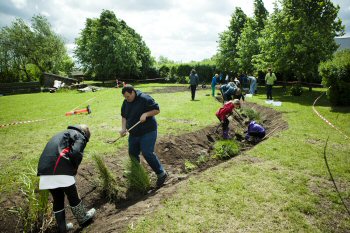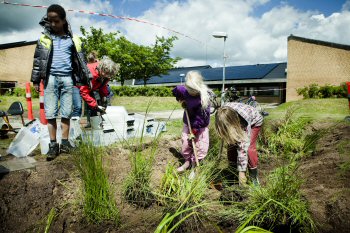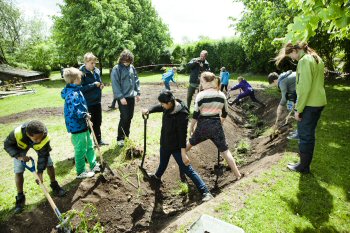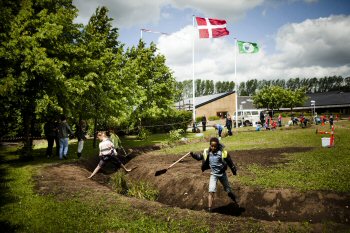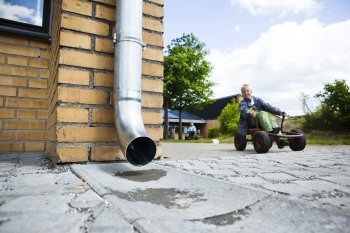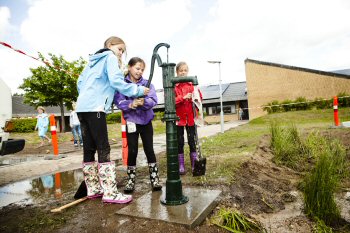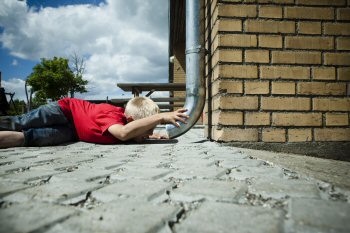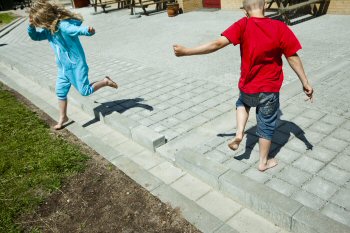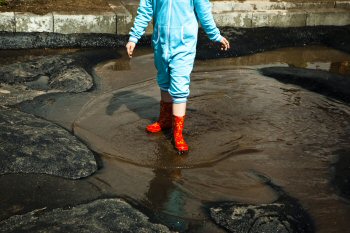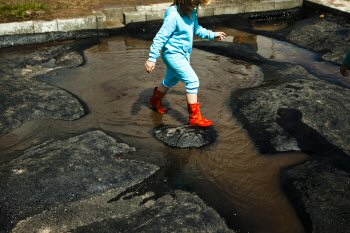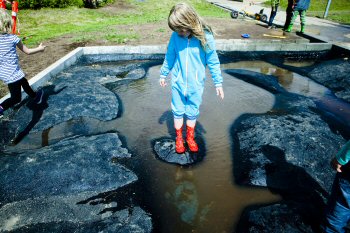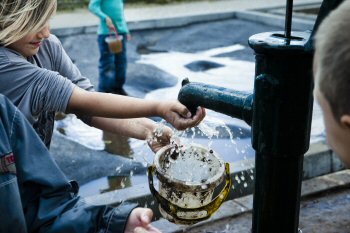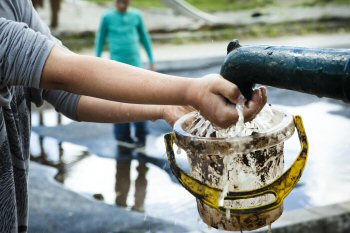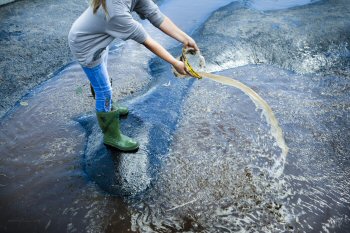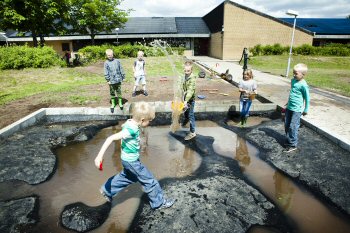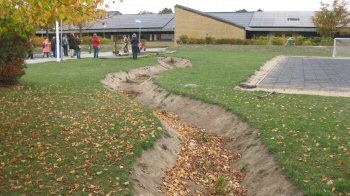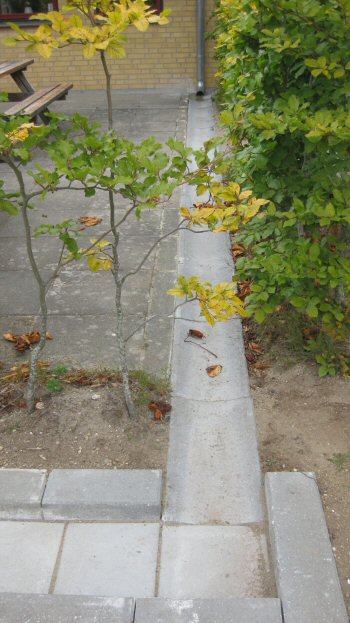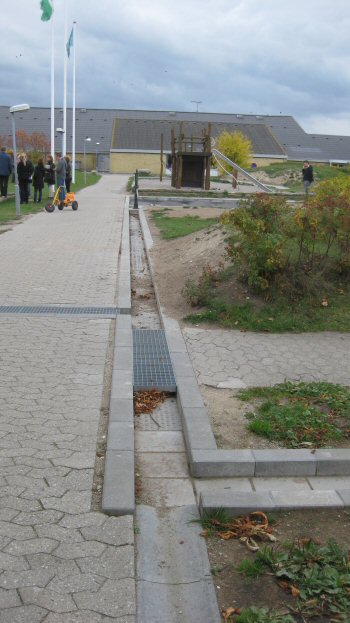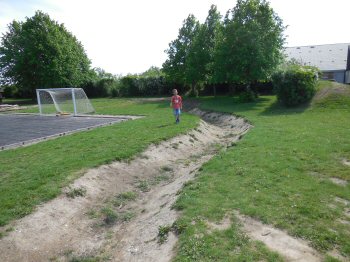Climate School Project, Gunsølille
The project group is made up of the following businesses:
Lindebjergskolen, Roskilde Municipality, Roskilde Forsyning, IBF, NCC, Thing & Brandt Landskaber, Wavin, ACO Nordic, Nykilde, Rockwool International, Gundsølillehallen, Gundsø Entreprenør Forretning, Genwater, BP Køleanlæg, LiAn Architects, Small Copenhagen, KLS Grafiske Hus, MJK Automation, Odense Municipality, Hillerød Municipality, the Danish Hydraulic Institute (DHI), Aalborg University Copenhagen and the Danish Technological Institute (TI).
Status of the Climate School, August 2013
The school has worked in cooperation with the project group to implement the following projects/activities, among others:
- Water trenches, rain gardens, soakaways with water pumps (collectio), ditches and permeable surfacing were implemented in June 2013 (authorised by the Environmental Protection Agency) - see photos here
- A paddling pool depicting Roskilde Fjord was implemented in June 2013 (authorised by Roskilde Municipality's Kom-ud-og-leg-pulje [Come out and play pool]) - see photos here
- Expedition 'Rain garden vegetation' for 3.A and climate ambassadors, implemented by Amphi Consult in June 2013 (authorised by Roskilde Municipality's climate council) - see photos here
- Art workshop with climate prints on Rockfon panels in blue space for Years 6-8, implemented by communications company Small Copenhagen in June 2013 and completed in September 2013 (authorised by Roskilde Municipality's climate council) - see photos here
- Concept development for management of rainwater as a resource, completed in September 2013 (authorised by Water in Urban Areas, see www.vandibyer.dk (in Danish))
- A rain gauge (RIMCO) was set up in February 2013. This rain gauge measures precipitation every minute (funded by DHI)
- Klimaskole rap performed with Chapper & Überlyd in January 2013 (authorised by Roskilde Municipality's environmental pool) – see the rap here
- Acquired the green flag in May 2012
- A green tag is constructed in May 2012 (funded by Roskilde Municipality) - view the video here.
- 23 climate ambassadors (Year 8 and 9 student) received training in April 2012 (funded by www.klimaambassaden.dk under Concito)
- 2 water level meters (chatter units) were set up in April 2012 (funded by MJK Automation)
- Held a public meeting with 4-500 participants in November 2011. This meeting was attended by Mette Gjerskov, Minister for Food, Agriculture and Fisheries, and Joy Mogensen, Mayor of Roskilde Municipality
Future projects:
- An outdoor classroom area termed a 'Multiroom with cloudburst protection' will be constructed in 2014. The funding is approved by the Environmental Protection Agency
Vision for Climate School
The overall objective of Project Climate School is to develop a concept for a climate school which can be transferred to all other schools and public institutions in Denmark (and elsewhere). The concept is being demonstrated at Lindebjergskolen and Gundsølillehallen in Roskilde Municipality.
Lindebjergskolen and Gundsølillehallen directly have the following 5 visions:
- The school must manage rainwater on its own land.
- The school must be self-sufficient in terms of electricity and heating.
- The school must visualise its consumption of electricity, water and heating via a display on the Internet which is updated every 12 minutes.
- The school must create links between learning about healthy, climate-friendly food at Lindebjergskolen and in practice at Gundsølillehallen.
- The school must, if possible, incorporate sustainable transport, e.g. school buses driven by fuel cells, electricity or biogas produced from local biomass.
On this website, you can monitor the development of the concept for local management of rainwater at Lindebjergskolen and Gundsølillehallen. This project is financed by Water in Urban Areas and officially began on 1 January 2012.
The target group is students (the climate generation), teachers, employees, all citizens in Denmark, municipalities, utility companies requiring water-sensitive urban design (WSUD).
Workgroups
The following workgroups have been set up (March 2012):
- The technology group: Discusses which technologies are to be used at the school.
- The teaching group: Discusses how we can use the presented technologies at the school
- The climate centre group: Discusses how the school can be used by the municipality or the utility company, for example, to highlight and communicate adaptation to climate change.
Photos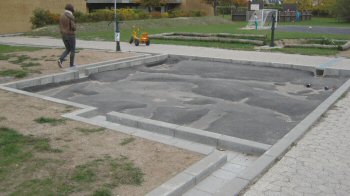
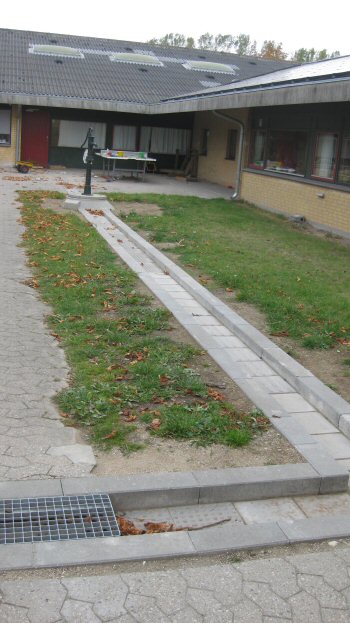
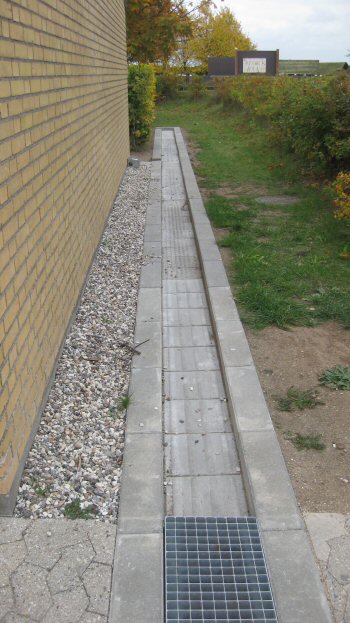
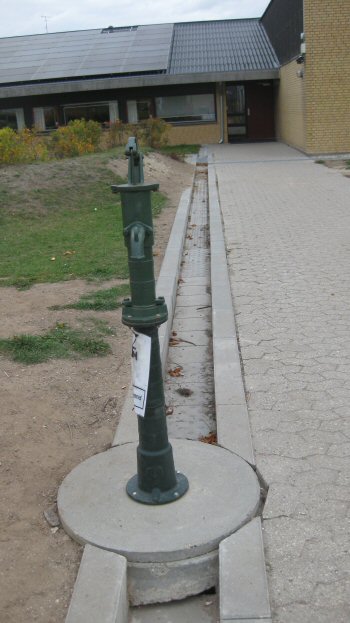
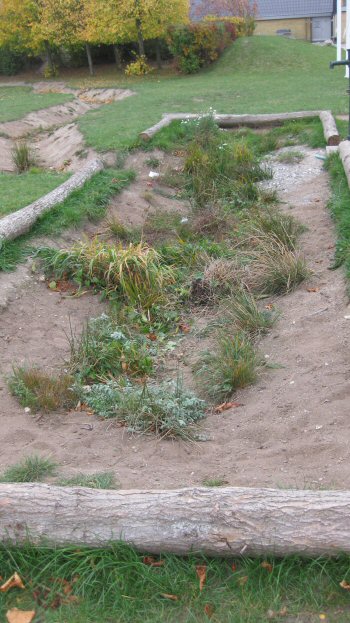
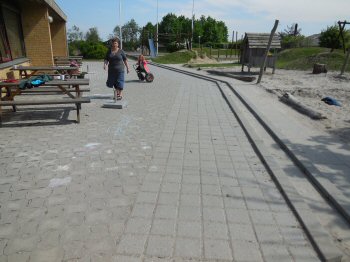
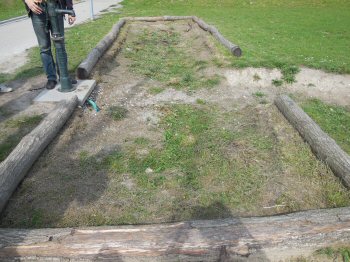
The following photos can be used only with references to Thomas Wilhelm, www.specialphoto.dk
